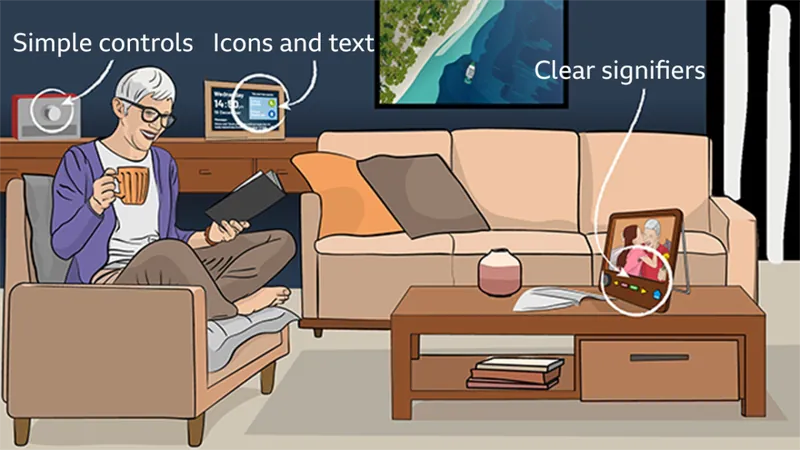
Can AI Revolutionize Life for People Living with Dementia?
2024-10-29
Author: Li
As technology continues to evolve, one of its most promising applications is how it can improve the quality of life for individuals living with dementia. Pete Middleton, a passionate technology enthusiast from Northamptonshire, UK, has experienced this firsthand. Having been diagnosed with dementia five years ago, Middleton finds himself navigating the challenges of memory loss while leveraging his tech skills to empower others in similar situations.
At age 65, Middleton's short-term memory has been affected, making it difficult for him to remember simple things, such as the location of his phone, despite his ability to create mobile applications. He strongly advocates for the integration of artificial intelligence (AI) into daily life, believing it could significantly enhance self-esteem, independence, and ultimately keep individuals out of care facilities.
One of the innovative tools in this arena is an AI-driven app named Simon. Utilizing geo-tracking and machine learning, Simon is designed to cater to the unique needs of its users by providing timely reminders—like a PIN number when someone is at a bank. Currently in beta testing, this app represents a step toward making daily routines more manageable for those with dementia.
Another significant initiative is the Florence Project, which focuses on developing communication technologies that enhance interaction without replacing the crucial dialogue between caregivers and those living with dementia. Professor Janet Wiles from the University of Queensland is at the forefront of this undertaking, advocating for user-friendly devices that incorporate input from those with lived experience of the illness.
The Florence Project has produced several straightforward tools such as a diary, music player, and a digital photo frame. These devices function with simple physical interfaces and can be adjusted remotely by family members while respecting the preferences of the user. For instance, if a person with dementia is comfortable, a family member can update their personal playlist from afar.
Every interaction is tailored to the individual's needs; AI collects and processes data through conversations and preferences, creating personalized experiences. For example, the diary might visually display information about new caregivers and their visit times to help jog memory.
However, the development process is deliberately slow to ensure safety and efficacy. With a decade of research already invested, the team is now refining prototypes, conscious that any technological missteps can have severe consequences for those with dementia. Data privacy and security remain paramount, not just due to the vulnerabilities involved but also to safeguard the dignity of individuals facing memory challenges.
In the quest to promote social engagement, the integration of AI extends to companion robots like Hiro-chan, a soft, huggable therapy robot designed to mitigate stress for individuals with dementia. Initial tests have shown that maintaining a simple interaction is crucial for engagement, highlighting the importance of human-like connections—even in robotic forms.
While AI offers groundbreaking potential, experts like Fiona Carragher emphasize that it must not replace human interaction but rather enhance it. Many advocates from the dementia community, like Dennis Frost, stress that social engagement is fundamental. In their view, fostering human relationships should be prioritized over technological interactions, posing a critical question: can AI truly care for individuals living with dementia?
Ultimately, Pete Middleton recognizes the great promise of AI but cautions developers to focus on the unique spectrum of dementia experiences. Each person is different, and solutions must be adaptable to accommodate varying stages of the condition, emphasizing the need for personalized approaches in technology design.
As AI continues to advance, it holds the potential to markedly improve the lives of individuals living with dementia while ensuring they remain connected, engaged, and respected members of society. The future of dementia care may very well hinge on this delicate balance between technology and human touch.


 Brasil (PT)
Brasil (PT)
 Canada (EN)
Canada (EN)
 Chile (ES)
Chile (ES)
 España (ES)
España (ES)
 France (FR)
France (FR)
 Hong Kong (EN)
Hong Kong (EN)
 Italia (IT)
Italia (IT)
 日本 (JA)
日本 (JA)
 Magyarország (HU)
Magyarország (HU)
 Norge (NO)
Norge (NO)
 Polska (PL)
Polska (PL)
 Schweiz (DE)
Schweiz (DE)
 Singapore (EN)
Singapore (EN)
 Sverige (SV)
Sverige (SV)
 Suomi (FI)
Suomi (FI)
 Türkiye (TR)
Türkiye (TR)